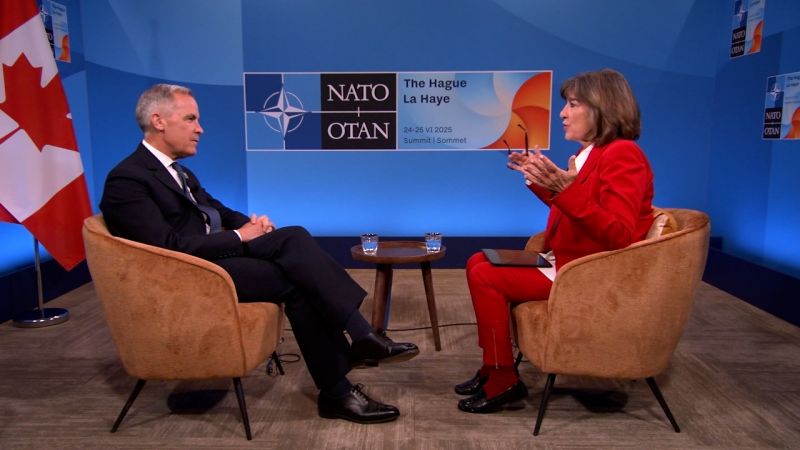Canada believes US President Donald Trump is no longer interested in turning it into the 51st state, Prime Minister Mark Carney said Tuesday.
Asked by CNN’s Christiane Amanpour on the sidelines of the NATO meeting in the Netherlands whether Trump is still saying he wants to annex Canada, Carney replied, “No, he is not.”
“He admires Canada,” Carney told Amanpour. “I think it’s fair to say, maybe for a period of time (he) coveted Canada.”
This is not the first time an official has pronounced the annexation saga over. On May 22, Peter Hoekstra, the US ambassador to Canada,toldCNN’s broadcast partner CBC that “Donald Trump is not talking about” turning Canada into the 51st state anymore. (Days later, Trumppostedon social media that Canada ought to become the 51st state to reap the benefits of the president’s proposed missile defense system.)
Carney has frequently pronounced the old, close partnership between Canada and the United States as “over.” He began his term by courting European partners in the United Kingdom and France, and even collaborating with Australia on new radar systems for the Canadian Arctic.
Still, Carney credited Trump for pushing Canada toward higher defense spending, especially meeting the defense spending benchmark for NATO members.
“The president is focused on changing a series of bilateral relations,” Carney told Amanpour. “We’re at NATO. He’s been focused on making sure that all members, Canada included … pay their fair share. I think we’re doing that now.”
Trump now has the “potential to be decisive” in the situation in the Middle East, Carney also told Amanpour. While a broader peace in the region is the ultimate goal, he added, the current priority should be getting “the basics”: a ceasefire, a full resumption of humanitarian aid and the release of all hostages held in the strip.
“He’s used his influence and US power in other situations. We’ve just seen it in Iran. It does create possibility of moving forward and there’s a moral imperative to move forward,” Carney added.
The Canadian leader also credited Iran for its “proportionate” response to the US having bombed three nuclear sites: a highly telegraphed strike on a regional US military base, which was largely intercepted.
“The military action was also a diplomatic move by Iran. We never welcome, obviously, hostilities and reactions, but it was proportionate, it was de-escalatory, it appears to have been previewed,” Carney said.
